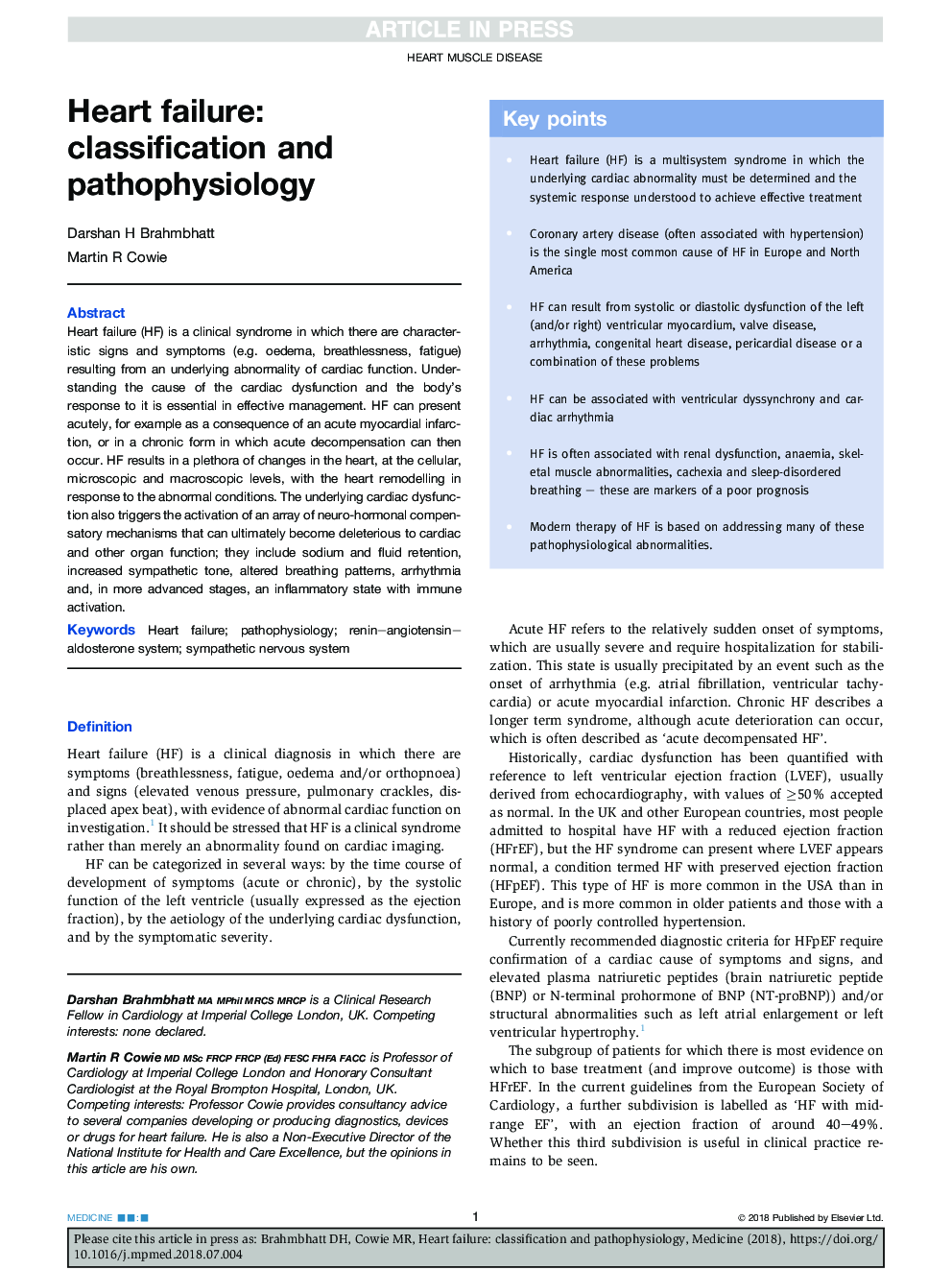| Article ID | Journal | Published Year | Pages | File Type |
|---|---|---|---|---|
| 11018234 | Medicine | 2018 | 7 Pages |
Abstract
Heart failure (HF) is a clinical syndrome in which there are characteristic signs and symptoms (e.g. oedema, breathlessness, fatigue) resulting from an underlying abnormality of cardiac function. Understanding the cause of the cardiac dysfunction and the body's response to it is essential in effective management. HF can present acutely, for example as a consequence of an acute myocardial infarction, or in a chronic form in which acute decompensation can then occur. HF results in a plethora of changes in the heart, at the cellular, microscopic and macroscopic levels, with the heart remodelling in response to the abnormal conditions. The underlying cardiac dysfunction also triggers the activation of an array of neuro-hormonal compensatory mechanisms that can ultimately become deleterious to cardiac and other organ function; they include sodium and fluid retention, increased sympathetic tone, altered breathing patterns, arrhythmia and, in more advanced stages, an inflammatory state with immune activation.
Keywords
Related Topics
Health Sciences
Medicine and Dentistry
Medicine and Dentistry (General)
Authors
Darshan H. Brahmbhatt, Martin R. Cowie,
